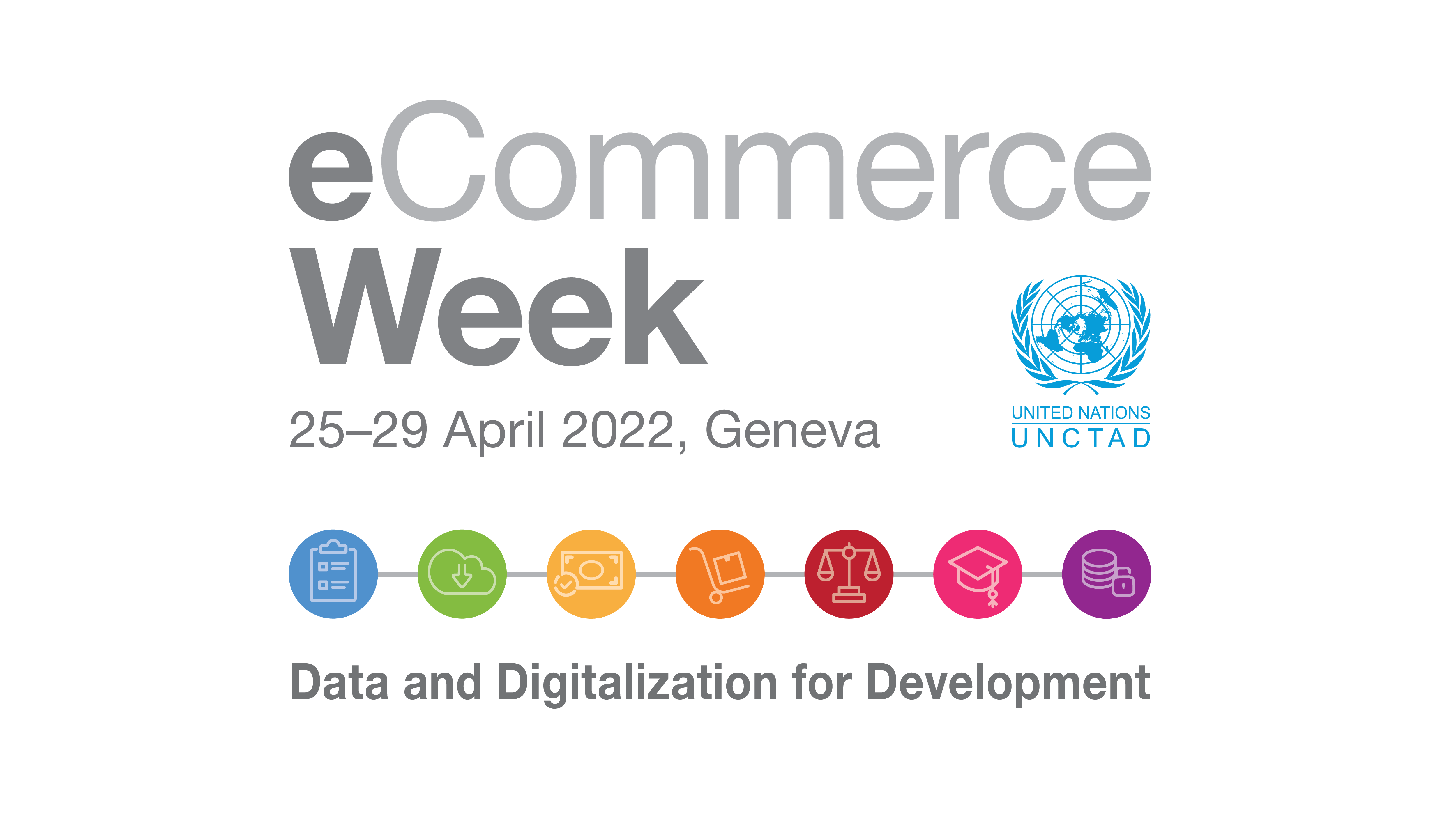The role of standards in digital transformation and digital trade
26 Apr 2022 17:00h - 18:00h
Event report
This session focused on the key role that international standards play to facilitate digital trade and digitally transform sectors, with a special emphasis on the role of small and developing countries in Africa. The speakers talked about the role of international standards in addressing the digital divide and the need for individual and institutional capacity development on the nexus of e-commerce and standards.
In the course of the discussion, the panellists agreed that the adoption of international standards helps trade and investment, is a driving force of economic growth and that standards create an ecosystem for the businesses to thrive. The panellists also agreed that while the uptake of digitalisation during the pandemic spurred the growth of e-commerce, the digital divide is widening. International standards are one way to address this issue. Each of the panellists presented initiatives aimed at supporting the adoption of international standards by policymakers and key stakeholders in the area of e-commerce.
Speaking from the perspective of the UK government, Ms Rebecca Fisher Lamb (Ambassador to the Economic Agencies in Geneva and Deputy Permanent Representative to the World Trade Organization of the Foreign, Commonwealth and Development Office, the United Kingdom of Great Britain and Northern Ireland) spoke about the UK’s Digital Access Programme that aims to catalyse more inclusive, affordable, safe, and secure digital access for excluded and underserved communities in Kenya, Nigeria, South Africa, Brazil, and Indonesia. Fisher Lamb pointed out the need for improving connectivity in the underserved areas to boost economic growth, as well as recognising the fact that standards affect all the areas of the economy.
Mr Torbjorn Fredriksson (UNCTAD, Head of E-commerce and Digital Economy Branch) presented the E-trade for All initiative that currently has 34 members. Specifically, Fredriksson spoke about the e-trade readiness assessment survey undertaken in Kenya in 2022 to pinpoint opportunities and challenges for the e-economy and to determine steps needed to implement the e-economy. Fredriksson highlighted the importance of data and data flows as a factor in achieving the SDGs.
With respect to African countries, Mr Nicholas Williams (African Development Bank, Manager, ICT Operations) pointed out that ICT infrastructure on the continent has a solid base in existing undersea cables, data centres, and the 4G network that enables the design of scalable solutions to the existing problems. Williams highlighted the need for awareness of the connection between the connectivity and its social and economic impacts, of connectivity issues such as cybersecurity and the impacts of data on future technological development in Africa. The Trust Fund for Africa, according to Williams, can directly attribute funds to solving specific issues related to digitalisation and solutions. With respect to Africa, Williams pointed out that due to the lack of political union to enforce processes and legal structures, many solutions face obstacles when being scaled up across the continent.
Speaking for the standards body, Ms Cindy Parokkil (British Standards Institution Government Engagement Manager, Standards Policy) identified the lack of trust and awareness of the role of standards as a key digital transformation challenge. Parokkil presented the BSI’s Standards-Based Digitalization Toolkit, which consists of a comprehensive policy guide on standards and 4-module training for high-level policymakers. The aim of the toolkit is to increase institutional capacity and aid countries on their journey to standards maturity – making standards fit for purposes and participating in inclusive co-creation of standards in standard-setting organisations.
The participants also discussed particular standards relevant to this area. Parokill pointed out ISO 27001 (information security), PAS 499 (digital identification and strong customer authentication), and PAS 280 (interoperability). Fredriksson cited a challenge facing African small businesses in meeting standards requirements in destination countries of e-commerce.
The panellists then spoke about the role of the African Continental Free Trade Area and its impacts on e-commerce. Fisher Lamb pointed out that the UK is the first country to have an agreement with the AfCFTA to work on e-commerce and to implement lessons learned in this area.
The participants agreed that the standards conversation needs to be undertaken holistically, in a wider context with the involvement of countries from an early stage in standard-setting proceedings, and allowing for participation in creating standards. The participants also agreed on the need for capacity development in this respect.
The audience at the session also added resources related to standardisation and e-commerce from the World Economic Forum and the International Chamber of Commerce.
By Pavlina Ittelson
Related topics
Related event

